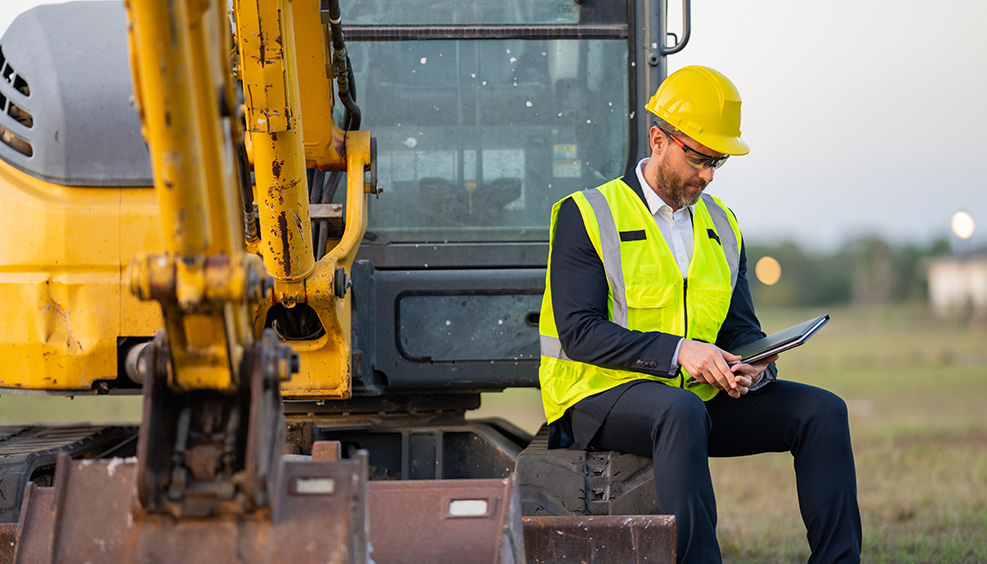Renting construction machinery is an efficient way to manage costs and access the latest equipment for your project. However, when renting heavy equipment, it’s essential to consider the local regulations that govern its use. From safety protocols to environmental concerns, understanding these rules can help you avoid fines, ensure smooth project execution, and protect your team. In this article, we will guide you through navigating the key local regulations to consider when renting construction machinery.
1. Know Your Local Zoning Laws
The first step in navigating local regulations when renting construction machinery is understanding your area’s zoning laws. Zoning laws dictate where construction activities can occur within a region and the types of projects that are permissible. Before renting any heavy equipment, ensure your project site falls within the allowed zoning for construction activities. This is especially important in urban areas where residential and commercial zones may have restrictions on the use of certain machinery.
Local zoning regulations can impact when you can operate certain equipment, the noise levels allowed, and other restrictions based on the location of your site. It’s always a good idea to check with the local municipality or building authority to ensure compliance with zoning laws.
2. Understand Permitting Requirements
Certain heavy equipment, especially larger machinery such as cranes, excavators, or bulldozers, may require a permit for operation. Depending on your location, there could be restrictions related to the size of equipment or the hours of operation. For example, in residential areas, you may need a permit to use heavy machinery during certain hours, or there may be requirements to notify neighbors about construction activities.
In addition to operation permits, some areas require transport permits to move large equipment to and from your job site. These permits can be complex and may involve road closure requests, police escorts, or notification of local authorities. Be sure to research the necessary permits ahead of time to avoid delays when renting heavy equipment.
3. Adhere To Environmental Regulations
Many jurisdictions impose strict environmental regulations that affect the rental and operation of construction machinery. These regulations safeguard natural resources, manage trash, and minimize construction pollution. For example, emissions standards for machinery are often governed by both local and national laws. Construction projects using heavy equipment may be subject to limits on fuel consumption, noise levels, and dust emissions.
Before renting equipment, confirm that the machinery meets the local environmental standards. Rental companies often offer a range of equipment with different fuel efficiencies and emissions ratings, so choose equipment that meets your project’s requirements while adhering to local environmental laws.
4. Ensure Compliance With Safety Standards
Safety is a top priority in construction, and there are numerous regulations in place to ensure the protection of workers when operating heavy machinery. Compliance with these standards is not only legally required but also crucial for avoiding workplace accidents. Depending on your location, safety regulations can vary from state to state or city to city, but common regulations include operator certifications, the use of personal protective equipment (PPE), and mandatory safety training for all workers.
In some regions, certain heavy equipment rental companies may require proof of operator qualifications before they allow you to rent specific machinery. Ensuring that your team has the proper certifications and training is key to staying compliant with local safety regulations. Make sure you are aware of your legal obligations to protect your workers and ensure safe operations.
5. Check Liability And Insurance Requirements
When renting construction machinery, it’s essential to verify the insurance requirements in your area. Some localities may mandate specific insurance coverage for construction equipment, including liability, damage, and theft coverage. It’s crucial to confirm that both you and your rental company are adequately covered in case of an accident or equipment failure.
Insurance not only protects your business but also ensures that you comply with local regulations that require construction projects to carry specific insurance policies. Ensure that your rental company provides you with the necessary documentation to prove that your equipment is fully insured while in use.
6. Review The Rental Agreement
Before renting any heavy equipment, take the time to carefully review the rental agreement. This document should list both parties’ duties, including local regulation compliance. The agreement should specify who is responsible for obtaining permits, paying fines, or handling inspections related to the use of the machinery. Make sure the rental company provides clear guidance on what regulations apply to the equipment you’re renting and how to stay compliant.
Conclusion
Navigating local regulations when renting construction machinery may seem overwhelming at first, but with careful planning and research, you can ensure that your project complies with all necessary laws and standards. Understanding zoning laws, permitting requirements, environmental regulations, safety standards, insurance obligations, and the details of your rental agreement will help you avoid potential pitfalls and keep your project on track. Renting heavy equipment can be an excellent way to manage your construction needs, but staying informed about local regulations is key to ensuring a successful and legally compliant operation.

